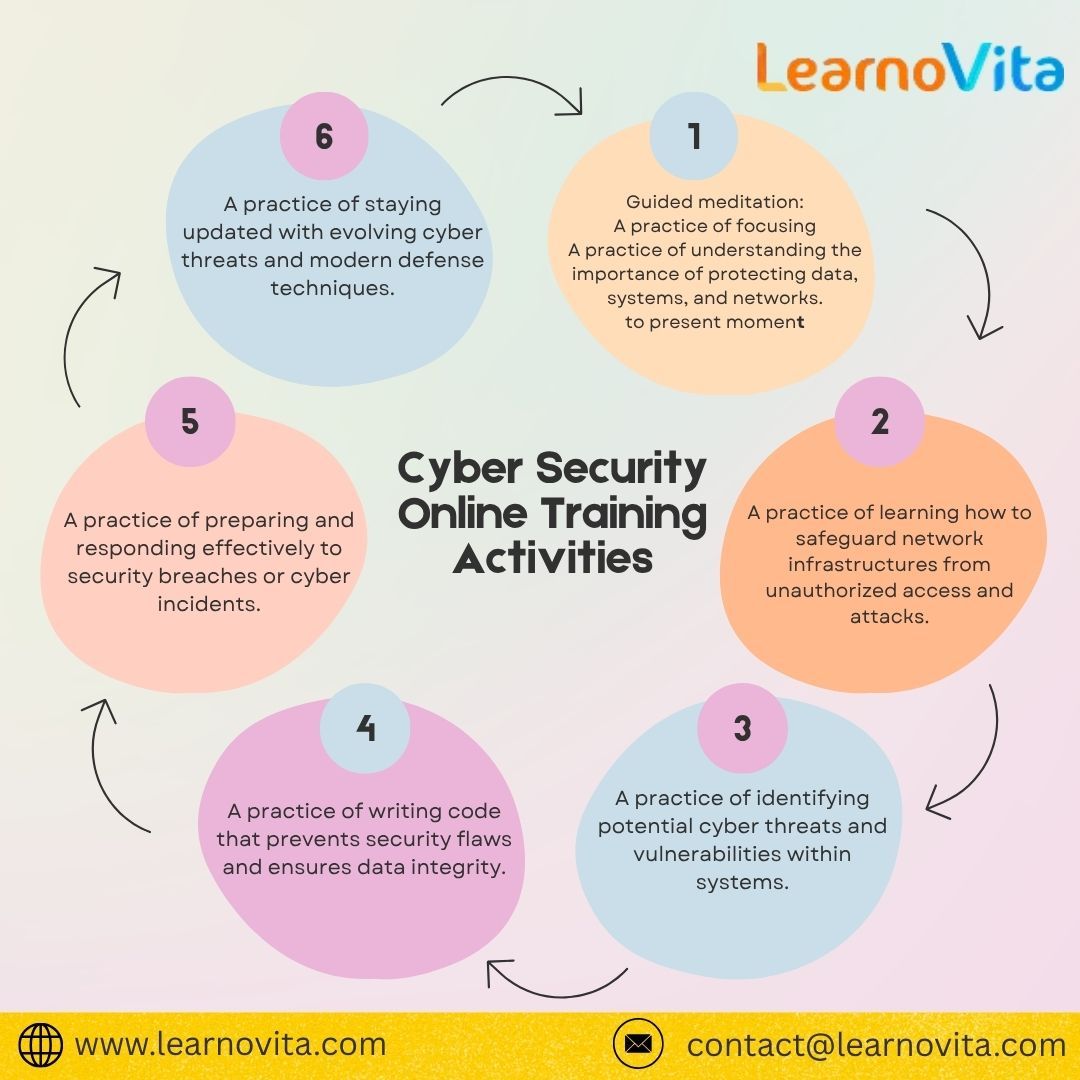Cyber Security Online Training: Essential Protection for Remote Workers and Freelancers
Cyber Security Online Training: Essential Protection for Remote Workers and Freelancers
Blog Article
The New Reality of Remote Work
Remote work has become the norm for millions of people worldwide, offering flexibility and freedom to work from home, co-working spaces, or even while traveling. However, this convenience also brings new risks. Remote workers and freelancers often use personal devices, unsecured networks, and cloud platforms—making them easy targets for cyber criminals. This is why Cyber Security Online Training is critical for anyone working outside a secured corporate environment.
While companies may invest in protecting their office systems, remote workers are largely responsible for their own digital security. A single mistake—such as connecting to an unprotected Wi-Fi network or downloading malware—can result in data breaches, financial loss, or loss of client trust.

Unique Cyber Threats Faced by Remote Professionals
Cyber Security Online Training prepares remote workers and freelancers to handle specific threats, including:
Public Wi-Fi Risks: Hackers often use open Wi-Fi networks in cafes or airports to intercept sensitive data such as login credentials or project files.
Phishing Emails: Cyber attackers target remote workers with emails that appear to be from clients or colleagues to steal information or install malware.
Unsecured Devices: Personal laptops and smartphones may lack the latest security updates or antivirus protection, making them vulnerable.
Cloud Storage Threats: Remote professionals often store client data in cloud platforms like Google Drive or Dropbox, which require strong access controls to prevent unauthorized entry.
Proper training teaches remote workers to recognize these dangers and take steps to mitigate them.
Key Topics Covered in Cyber Security Online Training
Secure Internet Use: How to set up Virtual Private Networks (VPNs) and avoid using unsecured public Wi-Fi connections.
Strong Authentication: The importance of two-factor authentication (copyright) for email, project management tools, and cloud storage accounts.
Data Encryption: Learning to encrypt sensitive files and communications to keep client information private.
Device Protection: Best practices for installing firewalls, antivirus software, and keeping operating systems up to date.
Client Data Handling: Guidelines for storing, sharing, and disposing of client data securely to maintain professional trust and avoid legal issues.

Why Online Training is Ideal for Remote Workers
For freelancers and remote employees juggling multiple projects, flexibility is key. Cyber Security Online Training offers self-paced modules that can be completed anytime, anywhere. Whether in between client calls or during off-hours, remote workers can enhance their security knowledge without disrupting their work schedules.
These training programs often include real-life simulations, interactive videos, and quick assessments, making learning engaging and practical.
Gaining Client Trust and Professional Reputation
Remote professionals often work with sensitive information—such as business plans, financial records, or proprietary designs. Clients expect their data to be handled securely. Completing Cyber Security Online Training not only protects remote workers but also enhances their reputation as trustworthy, responsible professionals.
Freelancers who list cyber security knowledge on their resumes or profiles may attract more clients and higher-paying projects, especially from companies that prioritize data security.
Conclusion
In the evolving world of remote work, Cyber Security Online Training is not just an advantage—it’s a necessity. By understanding and applying the principles of online security, remote workers and freelancers can protect their data, maintain client trust, and prevent costly mistakes.
Investing in online training today ensures safer, more confident work practices tomorrow—no matter where you log in from.
Report this page